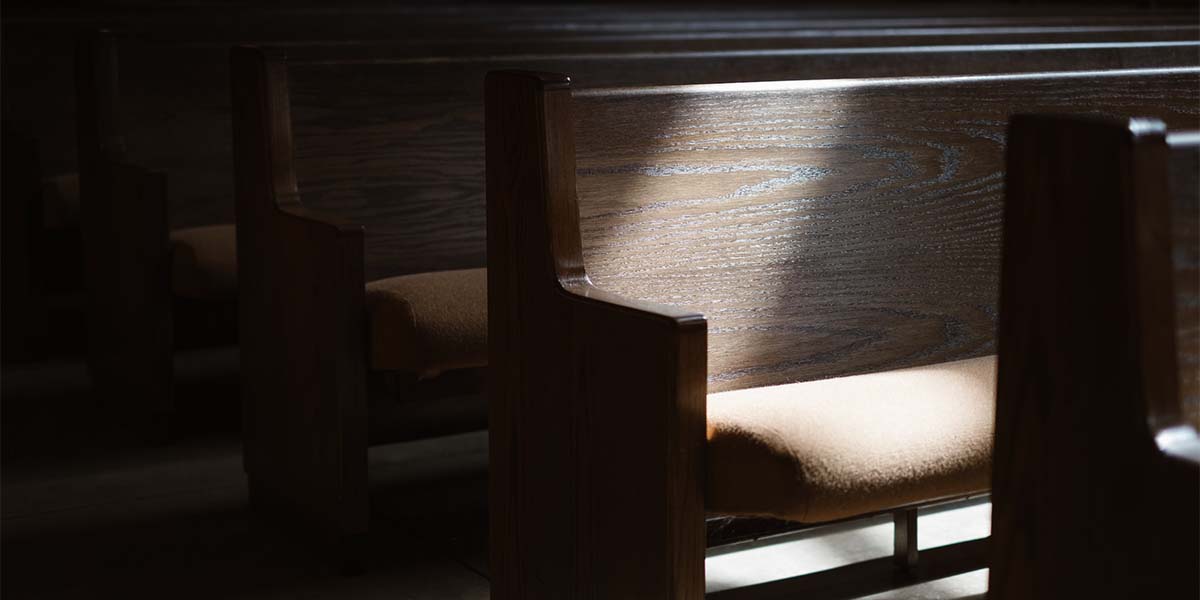
4 Steps to Get in Touch With Your Spiritual Side
When we think of wellness, typically what springs to mind involves fresh vegetables or daily vitamins. Often overlooked, though, is one’s spirituality as an aspect of wellbeing. Spirituality encompasses a wide range of ideas that influence who we decide we are and how we decide to live our lives.
‘Spirituality’ can bring up a variety of reactions, as identifiying with religion can feel deeply personal, confusing, or even off-putting. Although sometimes taboo to discuss, our sense of spiritual identity identifies our spiritual ‘coordinates’; where we are in the context of a meaningful world. What is our purpose for living, and what – if anything – is charging us with this duty? What are the morals that guide our behavior, and how do we choose to interact with the other humans in our environment?
What is spiritual wellness?
Good spiritual wellness can quiet our existential concerns and give a sense of purpose, and identity. Caring for our spiritual selves can encourage us to reach for our full potential and foster social responsibility. As we get swept up in a busy world, figuring out how to engage ourselves spiritually can be frustrating and overwhelming. But even the most spiritually sure individuals can sometimes hit a block in their spiritual lives. So, what are some steps we can take to better understand our spiritual selves?
1. Consider Religion and Spirituality
Despite being used interchangeably, religion and spirituality are separate (although related) concepts. Broadly speaking, religion is an expression of human spirituality. Spirituality involves our entire sense of connection to human ideals and greater cosmic structures. It can provide moral guidance and existential satisfaction. Religion is an organized set of beliefs about the spiritual world, often including set creeds, rituals, and institutions.
Religion can give people an opportunity to interact spiritually with a community. While some people are comforted by the structure of religion or attached to a certain religious identity, others find it limiting and prefer to be spiritually nomadic or unattached. Considering your relationship to a specific religion (or religions) can be an important first step to take in understanding your spiritual identity. A tall order!
2. Know Your Background and Biases
Deepening our understanding of our spiritual selves often involves considering our background with religion. While some of us grew up with it and some did not, we all grew up in a world that had religion in it. Before we can start to really understand our own spiritual path, we need to learn what biases or preferences we might be carrying with us.
Consider what experiences have shaped your values and identity: experiences with religious communities, special places, or ideas that ring true. What are the concepts or aspects of religion that feel especially important to you?
3. Expand Your Horizons: In Big and Small Ways
While it’s important to know where you come from spiritually, it is also important to consider where you want to go! Expanding the horizons of your spiritual world can help you consider spiritual goals, and refine current beliefs. From picking up a new book, exploring new religious music, or even going to a different religion’s spiritual gathering, exploring the outside world of religion and spirituality can help you understand your own internal world.
As you engage in spiritual exploration, take time to consider your reactions to these new experiences. Are there aspects that make you curious? That comfort or repel you? Make you angry or sad? Even considering cover art or titles of books you’re drawn to can help you understand your spiritual preferences and personal symbols.
4. Making Personal Rituals
Just like going to the gym, every morning can be an important ritual for physical health, creating a spiritual ritual for yourself can be an important practice for spiritual health. Maybe you want just one you repeat whenever needed, or you want a ‘menu’ of items to shake it up.
When many people consider a ritual, they often think of the ‘what’ of a ritual. What are you doing? While some rituals are deeply ingrained in religion, such as prayer or meditation, a ritual can be made of any behavior that feels sacred to you. This can include reading devotionals or poems, singing, spending time with your body through yoga or deep breathing, connecting with others, or just about any other activity that makes you feel connected to a greater sense of meaning.
Part of the usefulness of having rituals for ourselves is having a repeating spiritual moment we can return to. Though it can be difficult in our busy world, this means finding a time: perhaps a certain time of day, a moment in the week, or even with each of the seasons passing. While people often make a separate time for their rituals, you can also ‘nest’ a spiritual ritual within other activities – meals, showers, exercise, or preparing for sleep.
When creating a ritual, many people find it useful to engage their senses. How might you bring smell into a ritual? Incense, a cup of tea, or cooking food? Are there certain sounds or music that feel sacred or special to you? What images might help you get into a spiritual mindset? The addition of something sensory to your ritual can help bring your spiritual moment into the physical world.
The concept of ‘sacred ground’ is often associated with more indigenous populations, but in reality, most of us have some attachment to different places in our life. They may be specific (like your favorite room) or general (like a forest or field). Creating or visiting places that we consider to be our sacred ground can help ground you spiritually.
Many factors will shape your spirituality identity throughout your life. By broadening the ways you engage in spirituality you can start to foster the everyday spiritual wellbeing that we all crave. Sometimes this can feel like a lot to tackle. Check out Lifeologie's resources about spiritual counseling here.
Want someone to walk this journey with you? I offer spiritual counseling at Lifeologie Counseling Grand Rapids and via telehealth in Michigan. Call (616) 929-0248 to book a session or click the yellow "reach out for more info" button above to connect with me.
If you need counseling near you and Michigan isn't your home, look for a local therapist who helps guide clients on their spiritual journeys.

About Sarah Hazelwood (Confer)
Sarah Hazelwood (Confer), MA, LPC, studied art and psychology at Grand Valley State University and earned a Master of Arts in Mental Health Counseling from Aquinas College. She specializes in grief, loss, terminal illness, anxiety, stress management, self harm, religious and spiritual counseling, pregnancy/prenatal/postpartum, LGBTQ and gender issues, and identity formation and reformation. She sees teens and women of all ages at Lifeologie Counseling Grand Rapids Cascade.
Meet Me



